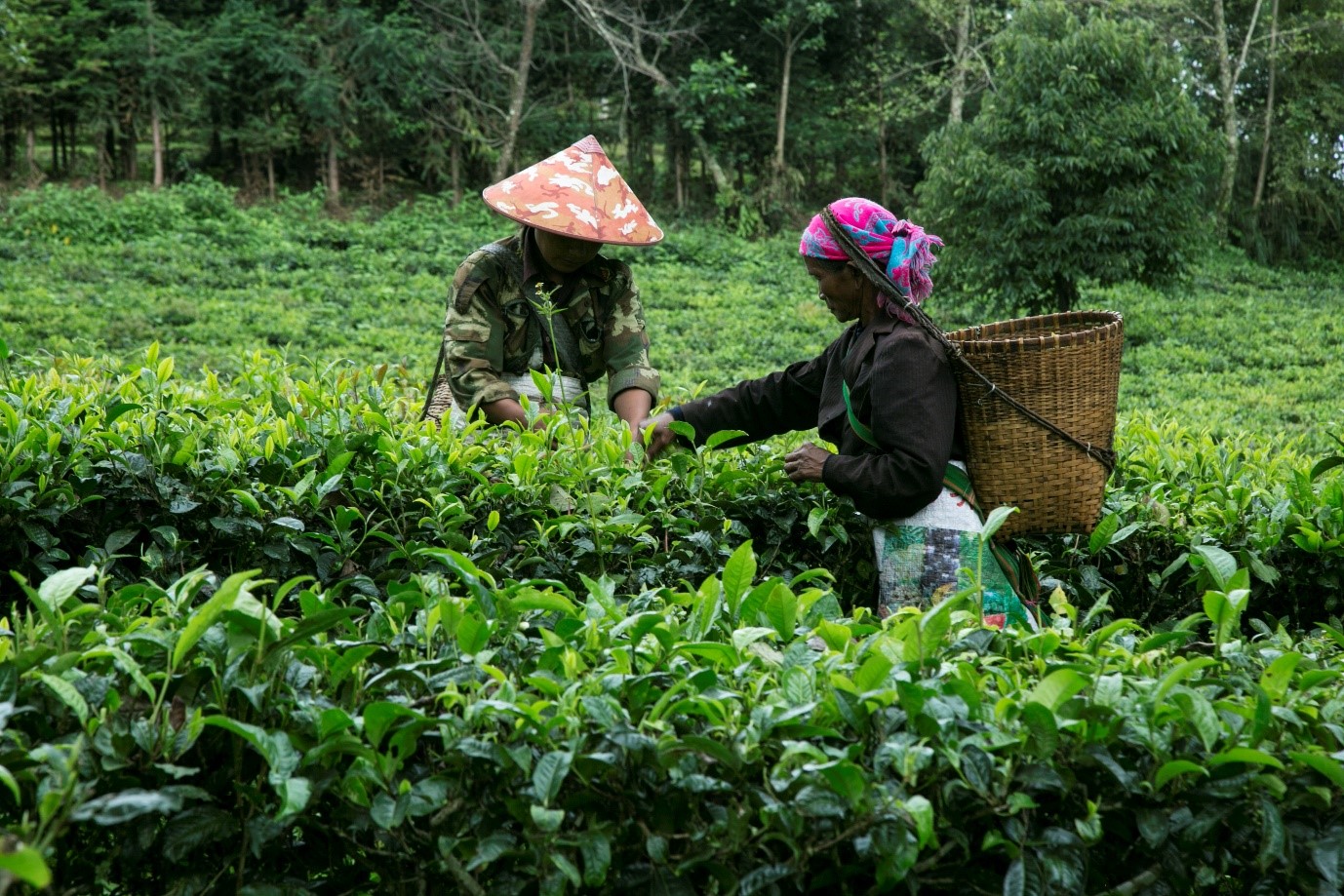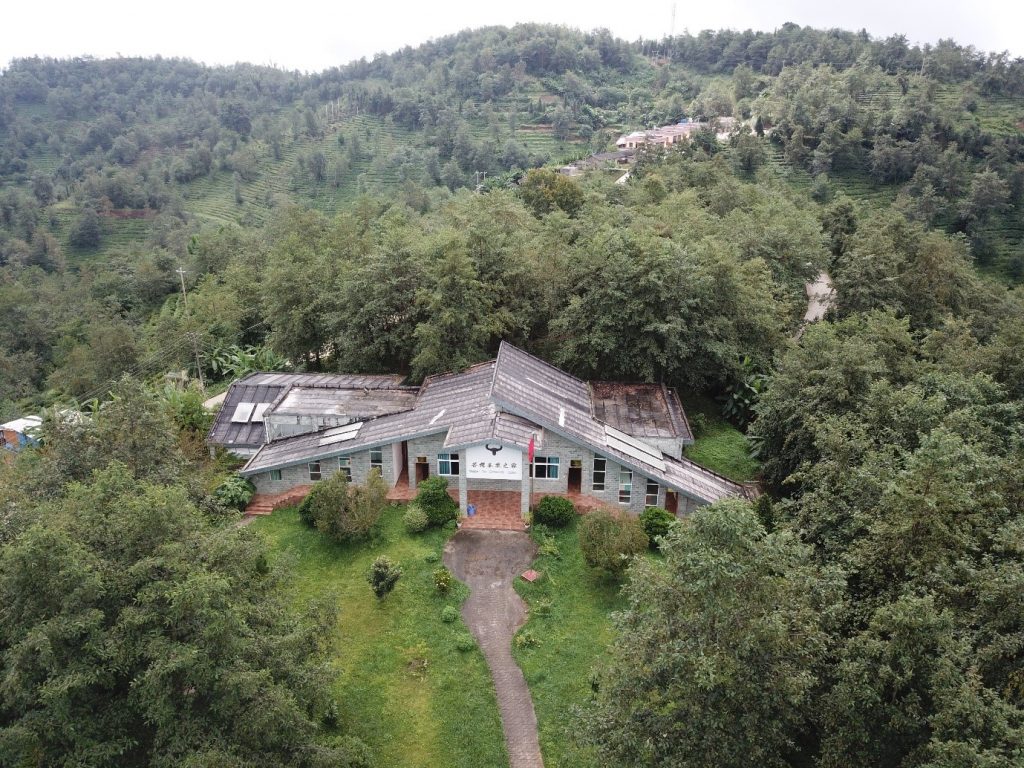
February 4, 2021, by aczjb1
Building-up an ecosystem for organic agriculture in China
In the latest of his GCRF Research blogs, Dr Bin Wu writes about his recent project with Yibing Wang, Research Director at the YouChange Foundation, about the GF Tea Company in China.
Responding to the increasing need for healthy food, in recent years there is a new trend of reverse capital flow from the urban to rural areas of China to develop organic agriculture. A challenge facing urban investors is in mobilising small farmers’ participation and changing the latter’s attitudes and production styles to meet new standards. It is largely dependent upon whether mutual trust and collaborative relationships can be built up between external investors and local farmers who are responsible for farmland under the Chinese legal system. This story sheds new light on the nature of multiple dimensions concerning organic agricultural development there, in which social innovation/enterprise plays an important role.
G.F. Tea Co. Ltd (GF Tea thereafter) was founded in Guangdong, a coastal province near Hong Kong, for the tea trade targeted at European markets. A new food standard system implemented in the EU since 2000, has made it difficult for Chinese firms– including GF Tea – to export due to the high pesticide residues in Chinese tea.
This triggered a long process for Ms Huan, the founder of GF Tea, to explore a pathway to produce and supply organic tea for the changed market. This required the establishment of a collaborative relationship with small farmers who are entitled to use and manage responsible farmland under the current collective land system in rural China.
The challenge facing her was how to persuade hundreds of small farmers to adopt a new standard with an intensive labour cost that would replace cheap but pollutive chemical fertilisers and pesticides in a large scale, effective and profitable production. That means that in addition to technological and economic considerations, an organic agriculture in China needs to bring a social dimension to build up a mutual trust for long term collaboration with local farmers. Missing the third dimension is perhaps a major cause for the failure of many agricultural projects invested by external capital until now.
To address the above challenge, Ms Huan had the opportunity to meet and learn from Ms Wang, founder of YouChange Social Entrepreneur Foundation, a leading NGO in China specialising in rural education and entrepreneurship training for poverty alleviation. This led to a new idea to build an organic tea garden containing three interwoven components: ecological, economic and social benefits to local society. Accordingly, Ms Huan set a vision for her company: “not for the top 500 companies, but to last for 500 years”. This vision reflects her commitment to users, consumers and business partners for long term cooperation on the one hand, and to rural community, employees and local stakeholders for a co-development and fair distribution of project benefits on the other. With the participation of YouChange, GF Tea developed a Strategic Plan in 2007 with the mission to protect the local ecological environment and effective use of natural resources, together with the promise of the wellbeing of tea farmers and tea workers to ensure high quality tea products.
In practice, GF Tea identified and established its organic tea garden 15 years ago after a comprehensive investigation on climate, ecological, soil and social conditions on a large geographic scale. It is located in a remote, mountainous and Wa Minority village in Yunnan Province with a total of 15,000 Mu (or 1,000 Acres) of wasteland distributed between 1,500 and 1,820 meters above sea level. With the support from the local government and participation of all villagers, the lands were reclaimed with the preservation of its 160,000 native alder trees and stalk grasses for soil erosion control. Following the international standards for tea production, GF Tea has become the first Chinese enterprise that obtained the international sustainable agriculture Rainforest Alliance certification in 2012.
The organic tea garden cannot be separated from the partnership between GF Tea and local farmers. With the participation of international customers for instance, GF Tea jointly built up a community centre in 2011–Mangbai Tea Farmers’ Home– which consists of a clinic, a teaching room, a library, a sports centre, and a standard basketball court. It has provided a sound foundation for the company to foster villagers’ participation, and provide a series of training courses, leading to a changes in their perceptions and behaviours, including: hygiene habits, continuous education of students in vocational college from poor families with company financial subsidises; regular farmers’ games; awareness of environment protection and action in the tea garden.
Since 2016, its ‘Tea in Trees’ brand has been popular in Chinese tea markets among young white-collar workers, consumers who prefer to organic food, and also those who have a sense of responsible consumption and advocating UN sustainable development goals. Not limited to organic tea production beneficial to local community surrounding, GF Tea garden has become a unique ecological landscape in the host County and beyond. It provides a foundation for the development of environmental education and rural tourism industry in this region. With the support of local government, GF Tea is in a process of transforming from an organic tea garden to a base for education and demonstration by combining organic agriculture, environment education, tea culture, local folk and other elements.
The successful story of GF Tea can be summarised as a process to build-up an ecosystem for organic agriculture to achieve and coordinate three tasks:
- establishing an ecological garden for better use of local resources to produce organic and high quality tea.
- creating an organic food brand in markets for long-tail commercial value.
- initiating a process of social innovation to bring together small farmers for mutual trust, community development and long term collaboration for poverty alleviation and common prosperity.
It might not have happened without the participation from YouChange which contributes a concept of social enterprise to cope with challenging issues facing rural development and sustainability in China.


A very impressive project with real tangible outcomes. I like the target to last for 500 years not be a top 500 company – I think a lot of use would benefit from that philosophy. We are looking forward to working with the University of Nottingham on projects on potato in China which hopefully have similar positive outcomes.